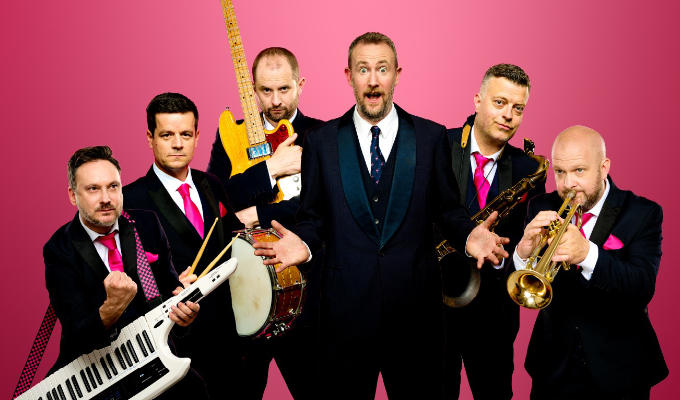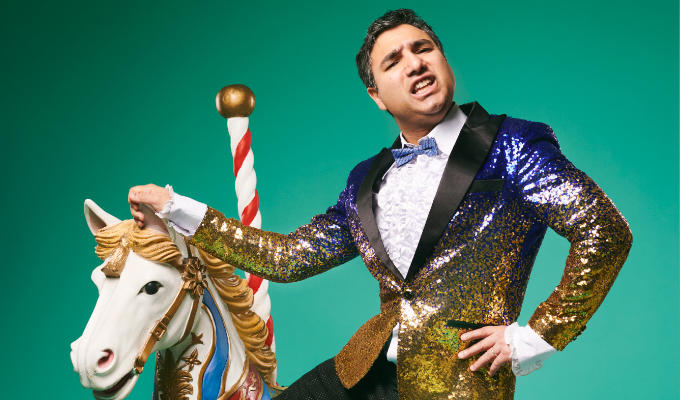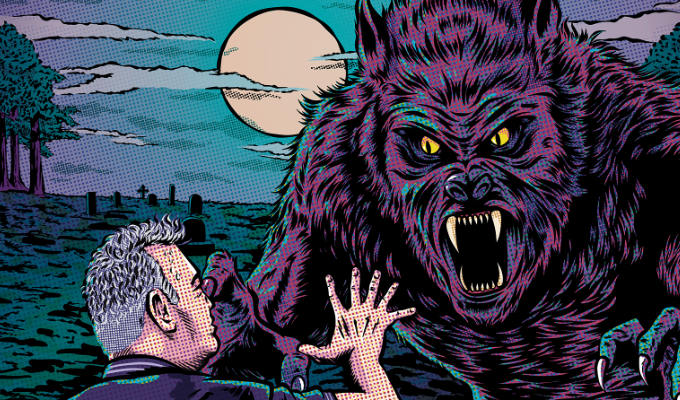Death becomes us
Tom Roche on the euphemisms of humiliation
Death. A beautiful, precise word. It annoys me when people euphemise it. ‘Oh, my condolences to hear that your Dad passed away’ or ‘I regret to hear that your Dad is no longer here….’ Like it was a choice.In comedy we do the opposite. It's such a common phrase among comedians, to say, ‘I died.’ I've used it often myself, followed by the phrase ‘on my arse’. Usually what we mean is, ‘I went on stage and nobody laughed at my stuff.’ It's a hideous feeling, to have 100 pairs of eyes staring at you with androgynous contempt.
It's happened to me three times, the last time eight months ago in Manchester. Once it’s over, my behaviour changes. I leave as soon as I can, speed very fast in my car, desperate to put as much distance between myself and the scene of the crime as quickly as possible, and to curl up in the cocoon of my bed. While driving I play music very loud to drown out the voice in my head saying, ‘Give it up! You're rubbish!’ I go to bed but don't sleep.
In the morning I sit down and dissect the past evening. What did I do wrong? How did I say this or that? How were the crowd? This is the best bit for me, because once you've worked out what went wrong, or worked out that nothing went wrong and it was just one of those nights, you can move on. The sound of no laughter still rings in your ears, just a bit duller. You eat breakfast, the sun still shines, you move on.
Talking to my colleagues in comedy, a death on stage seems to enliven them . Some of my favorite quotes have come from these moments: ‘I went a hell of a long way to die’; ‘For six minutes the only sound I could hear was my own breathing’; ‘Man, I stunk up the joint like a dead fish’; and the bizarre, ‘Now I know how Jesus felt,’ before walking out, never to be seen on the circuit again.
I also remember a story from a jocular lad called Brendan, who did the Gong Show at the Comedy Store in London. You can't really describe a gig there as a death, more of a murder. He went on as a character called Brendan God Junior and within thirty seconds was lambasted off stage.
‘The sound of 400 people shouting, “Get off, you're shit- still haunts me,”’ he said. ‘It felt like a really bad hangover which lasted four weeks.’
Conversely, when we have a really good gig we say, “I stormed it,” as if somehow we suddenly turn into paratroopers invading the back-rooms of pubs and clubs across the land. (Though I've lost count of the acts who go on stage and have a gig best described as tepid, yet come off and say, ‘I stormed it.’ No you didn't…)
My theory on the extremes of language used to describe good and bad gigs is that stand-up comedy is a spontaneous and extreme form of creativity. If you're writing fiction you’ve no idea whether it’s any good until the rejection slips pile up. If you’re making a film you could labour over it for months and still turn out a steaming pile of poo.
In stand-up, I've written ten minutes of new material in the morning and presented it to an audience that night. The crowd tell me whether it's any good there and then. Even then there might be something about the room – a chippy heckler, quirky seating, the caterwaul of a passing police car – which transforms your material on the spot. It's immediate and right in your face. That's why I think we use extreme and vivid words like death and storm.
And now I'll stop writing for fear of crawling a little too far up my own arse.
Published: 3 Dec 2008






